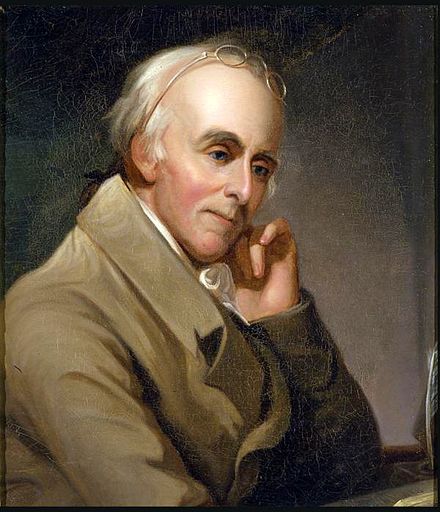
Dr. Benjamin Rush, (1745-1813) physician and Penn Professor.
Penn Medicine and the Afterlives of Slavery Project (PMAS) investigates how undergraduate medical students, both past and present, are taught to think about the role of race in medicine.
PMAS documents and analyzes how medical students were trained to think about race historically, specifically at Penn. As the first medical school in the nation, and as a premier generator of medical knowledge that circulated across the nation and around the world. Pen trained a large number of southern physicians whose medical ideas abut race were influenced by enslavement. Similarly, Penn professors, including Dr. Benjamin Rush, themselves taught medical theories about biological racial differences that were shaped by enslavement. These antiquated assumptions of biological racial difference continue to persist among present-day medical students, as demonstrated by this University of Virginia Study. These ideas, infused with implicit racial bias, have propagated to the current day. Some variants of these ideas are still taught and reinforced in the course curricula of undergraduate medical education.
Our goal is to reshape medical education at the University of Pennsylvania Perelman School of Medicine (PSOM) and beyond by creating social justice-informed medical curricula that use race critically and in an evidence-based way to train the next generation of race-conscious physicians. PMAS supports the ongoing efforts of Penn medical students leading this endeavor. Expanding beyond Penn, PMAS will offer recommendations to medical schools on how best to identify and dispel antiquated racialized assumptions in medical curricula.
OUR WORK @PENN
- Christopher Willoughby, Visiting Postdoctoral Fellow, "How Penn Professors Racialized American Anatomy: A Brief History"
- Christina Amutah, B.A., Kaliya Greenidge, Adjoa Mante, A.B., Michelle Munyikwa, Ph.D., Sanjna L. Surya, B.A., Eve Higginbotham, M.D., David S. Jones, M.D., Ph.D., Risa Lavizzo-Mourey, M.D., M.B.A., Dorothy Roberts, J.D., Jennifer Tsai, M.D., M.Ed., and Jaya Aysola, M.D., D.T.M.H., M.P.H., "Misrepresenting Race — The Role of Medical Schools in Propagating Physician Bias"
